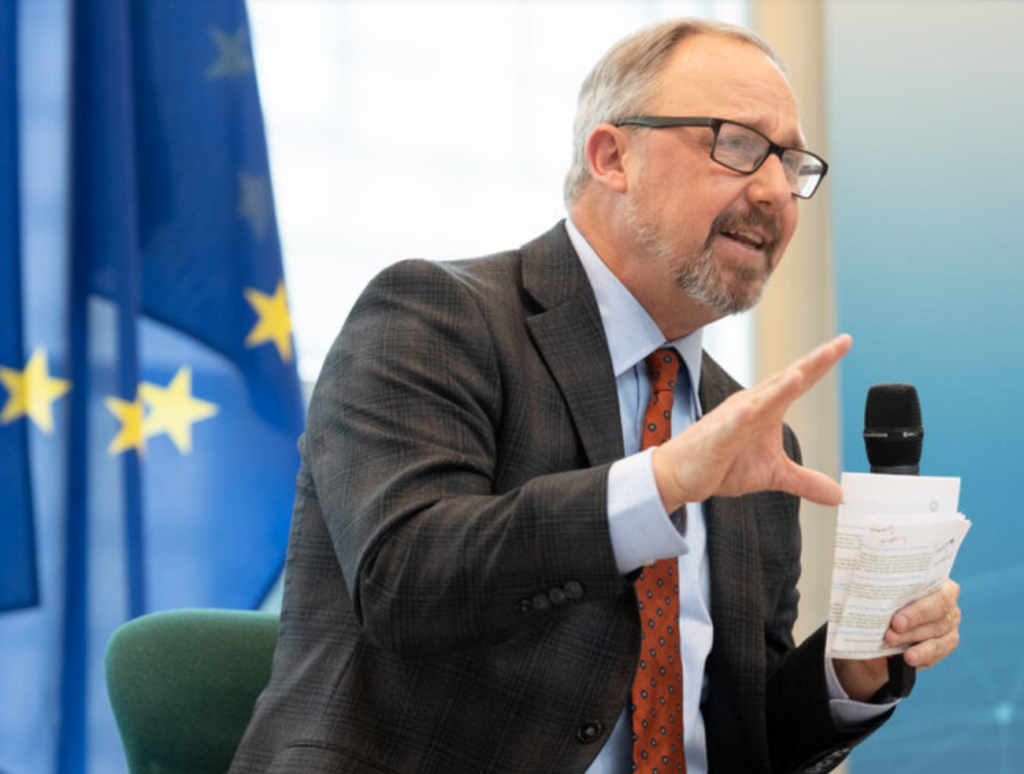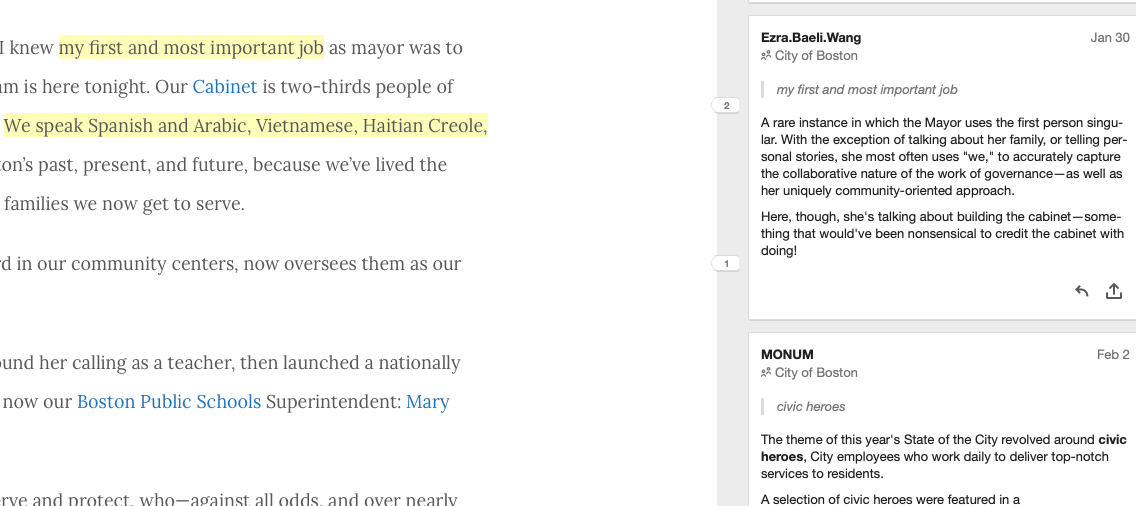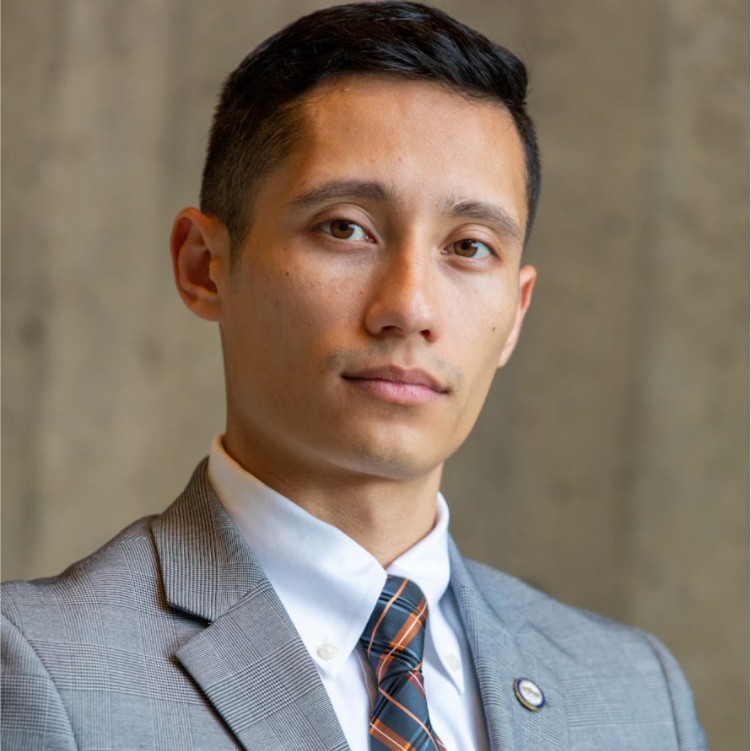Why We Give Speeches Now
April 19, 2023
(And why people come to listen.)
One fine spring Saturday over the backyard fence, I was bragging about my European Parliament speech to my neighbors in Chicago’s Ukrainian Village, who think all I ever do is mow my lawn, wash my motorcycle and drink beer in the morning.

“What’s the speech about?” asked Khrystyna, skeptically.
“It’s about … speeches,” I stammered. Khrystyna gave me a look that indicated she did not want to hear more. I don’t blame her, and I didn’t go on long.
Here’s what I would have told her if I could have laid tongue to it at the time:
My message is not just about speeches. It’s about the crying need of a society for communal experiences. Like speeches—and also, like rock concerts and comedy shows.
New York Times columnist Pamela Paul wrote last week about seeing a Bruce Springsteen show and a Jerry Seinfeld stand-up, under the headline, “Springsteen, Seinfeld, and What This Country’s Been Missing.” She wrote:
Even for this particular non-devotee, to witness the intense bond between Springsteen and his fans was an extraordinary experience. … I could feel the arena audience lock into Springsteen’s face. The low calls of “Bruuuce” between songs and the way Springsteen met his fans’ raised hands as he walked through the floor toward the end of a three-hour-long night felt like a timeless and almost transcendental communion. “Do you want go home?” Springsteen called out rhythmically to the audience to repeated “Nooooos” in response. They meant it.
Even if we can’t be together in person, we long like a scattered school of fish to experience the same things alongside one another—or at least at the same time. Paul points to the sitcom Seinfeld, which we all watched in our living rooms, together with our families—and, knowing many if not most others we knew were also watching in our living rooms at the same time and would be able and eager to discuss it at work the next morning. (My Facebook friend, the Nashville comic Cody Marley, wrote recently: “‘Seinfeld’s’ last episode? Traveling, I stopped, got a hotel room, ordered a pizza, watched it, got in my car and kept driving.”)
Before Seinfeld, it was Johnny Carson. My dad used to complain that his art director Al Schroeder would pop into his office every morning and ask if he’d seen The Tonight Show. My dad would answer, yes, he had. “And Al would tell me about it anyway!” Well, that’s because Al wanted to share it, Dad.
Now? We can’t discuss the shows we’re watching, because we spoil them for other people. So we spend our time begging those people to “catch up.” Oh my God, you have to see The Marvelous Mrs. Maisel! Oh my God, you haven’t seen The Wire? There’s real pain in those expressions. They are microcosmic cries for the kind of cultural cohesion that we once took for granted but we’re sorely missing. How can it ever come back?
When Studs Terkel was very old and all his contemporaries had died, his younger friends reminded him that he still had friends. “Yeah,” he reminded them back, “but they don’t know the songs.” Well, none of us know the songs these days, because we have no songs in common. And so we’re sad, all of us. And longing for connection.
My speech is about the power of speeches as one way to sate this longing. In it, I say that a speaker hasn’t achieved much by earning the audience’s admiration or even adoration. Only when the speaker has said something that causes audience members to become aware of experiencing an idea or a feeling in one another’s company—maybe they even glance at each other with raised eyebrows or knowing smiles—only then has a speech justified the terrible, moribund inefficiency of the form. I quote the Australian speechwriter Lucinda Holdforth, who writes in her speechwriting book Leading Lines about why we still give old-fashioned speeches, and why we still attend them. She writes:
Perhaps it is because there is some rough magic in the communal experience of listening, and a grace that comes with giving an individual the opportunity to speak their considered thoughts aloud in the welcoming presence of others. We come together to breathe in tandem, to experience our own responses and feelings alongside each other—and sometimes, if we are lucky, and if the speaker speaks truly, in deep connection with each other. We come together like this because to speak freely and to listen attentively is to be human; to express a core human capacity and a central democratic freedom.
Whether you’re putting on concerts, staging comedy shows or holding corporate communication events, you should exploit, indulge, reward and celebrate the longing, and the need, of human beings to experience meaningful things, in communion.
Like a spring Saturday, in a Ukrainian Village backyard.
(Better, Khrystyna?)




